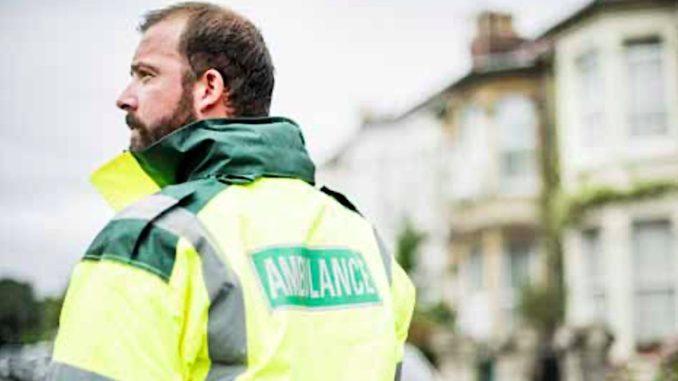
How can New Zealand improve its resilience against terror attack? Dr Barnaby Pace, Head of Department – Postgraduate and Research at Otago Polytechnic considers psychological approaches to counter terrorism and consequence management.
The events of the Christchurch Mosque attack have dramatically changed the New Zealand security landscape and the country’s sense of safety against terrorism. This presents us as a nation with an opportunity to reconsider defence strategies against such terrorist acts.
In this article I provide a brief summary of potential human factors and psychological strategies that could be implemented in an attempt to reduce the likelihood of future terrorist activities. What is provided here is a summary based on a presentation I delivered at the Asia Pacific Security Innovation Summit in Rotorua, which draws from the 2004-published Psychological Strategies for the Defence Against Terrorism by Koltko-Rivera and Hancock.
I present the defence strategies in terms of two potential approaches: ‘counter-terrorism’ and ‘consequence management’.
Counter-Terrorism
Increased terrorism awareness
This first approach – education – may seem logical, however it requires background work to ensure in particular that an appropriate definition of terrorism awareness is developed. The definition is important because it will provide a conceptual frame of reference for the development of any training.
To this end, psychometric measures need to be developed to ensure strengths and weaknesses within assessment tools and training packages are clearly identified so to maximise their effectiveness. This can be achieved through the development of programme evaluations.
Improve detection performance of counter-terrorism personnel
This second approach focuses on improving the detection performance of counter-terrorism personnel and can be divided in into four categories: (i) enhance detection abilities; (ii) supply sophisticated tools; (iii) enhance team function; and (iv) advanced training:
‘Enhance detection abilities’ can be achieved through the application of cognitive psychology and human factors research and methodologies to improve individual attention and decision-making skills, particularly in high-pressure situations. This can be achieved through the use of situational awareness and situated cognition training, as well as cognitive modelling [situated cognition is a theoretical approach to human learning that supports the idea that learning takes place when an individual is doing something].
Enjoying this article? Consider a subscription to the print edition of Line of Defence Magazine.
‘Sophisticated tools’ that utilise fuzzy signal detection theory and artificial intelligence can also improve the performance of counter-terrorism personnel in the detection of terrorist activity, however, training will again be critical.
The third category is ‘enhance team function’. From a psychological perceptive, the field of industrial-organisational psychology has a lot to offer through team performance improvement research [industrial-organisational psychology is the branch of psychology that applies psychological theories and principles to organisations].
Finally, ‘advanced training techniques’ can be implemented through the use of simulations, virtual reality training and micro world scenarios. These can provide the environment to enhance individual and team performance.
Obstruct terrorist activities
The third counter-terrorism approach suggested by Koltko-Rivera and Hancock is the obstruction of terrorist activities. Achieving this requires a focus on qualitative research and cognitive task analysis to ensure that professionals have an effective understanding of terrorist activities in order to obstruct them [cognitive task analysis (CTA) is aimed at understanding tasks that require significant cognitive activity from the user, such as decision-making, problem-solving, memory, attention and judgement].
One method to understanding terrorist behaviour is to reverse-engineer the actions of terrorist actors in order to determine motivation behaviours.
Consequence Management
If an event such as the Christchurch attacks was to occur again it is imperative that New Zealand has strong consequence management systems in place to minimise the impact on a local and national scale.
Several parallel approaches are recommended as consequence management interventions; including: (i) enhancing the capabilities of the first responders; (ii) improving escape and evacuation procedures; (iii) promoting greater resilience within the population; and (iv) the effective treatment of victims:
Enhance capabilities of first responders
Training is a recurring theme across all the approaches discussed. The development of situational awareness and situated cognition for first responders is the same as for counter-terrorism personnel discussed earlier.
Effective decision-making in higher pressure situations and cohesive team functioning is also critical for first responders. These skills could be enhanced through the use of simulations and micro world techniques along the same lines as that recommended for counter-terrorism personal [a micro world is a learning environment inside which a student can explore alternatives, test hypotheses, and discover facts that are true about that world].
Improve escape and evacuation procedures
Drawing on human factors research, improvements to emergency egress, including the usage of signage and alarm systems, could be identified and implemented.
Promote resilience in the population
Promotion of resilience through the utilisation of positive psychology research can serve to ‘strengthen’ and ‘toughen’ communities. Stress exposure training is also suggested by Koltko-Rivera and Hancock, although this would be difficult to implement within a community setting. It is suggested that stress exposure training be undertaken within target groups, such as first responders [stress exposure training is the practicing of skills in a stressful and distracting environment to develop the ability to perform them reliably in spite of the circumstances].
Treat victims effectively
It is critical that post-traumatic treatment and crisis psychological intervention be implemented effectively and efficiently. Treatment is also essential for military personnel and first responders, and for clinicians working with victims.
Conclusion
The majority of the strategies summarised here focus heavily on the implementation of effective training packages for those individuals working within counter-terrorism, first responder and medical roles or those who are likely to encounter terrorism. Such training packages need to be established and successfully implemented ahead of time, allowing skills to be tested and developed before they are required within real world situations. Preparation is key.









